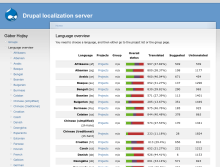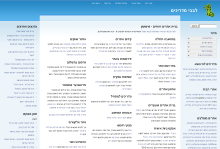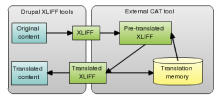To cater to the needs of multilanguage websites, Drupal and other content management systems should take into account the different uses of these sites and the unique content and interfaces they provide. For example, a search site where content will not be translated might need different languages in its interface, while a personal blog where posts are entered in different languages might need many different features.










